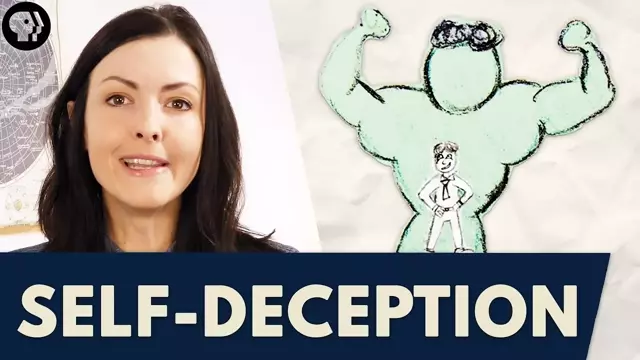2018-04-12
[public] 45.4K views, 2.34K likes, 19.0 dislikes audio only
4KDo you lie to yourself? Be... honest. This week we cover the psychology of self-deception.
Last week: Why People Blame Others /youtube/video/HQQe_yFDf0U
ORDER BRAINCRAFT MERCH! 🧠https://store.dftba.com/collections/braincraft
SUBSCRIBE to BrainCraft! 👉 http://ow.ly/rt5IE
Humans are complicated: a tangled web of amazing biology and bad behaviours. This illustrated field guide will equip you with the necessary tools to navigate the lying, jealous and judgmental tendencies of your fellow humans. This week we explore self-deception, the act of lying to yourself.
My Twitter https://twitter.com/nessyhill | Instagram https://instagram.com/nessyhill
BrainCraft was created by Vanessa Hill (@nessyhill) and is brought to you by PBS Digital Studios. Talking psychology, neuroscience & why we act the way we do.
This episode was written by Bahar Gholipour and filmed by Dominique Taylor. Animations by Vanessa Hill.
And thank you to Mike Rugnetta for his help improving the audio.
REFERENCES 📚
The Elements of a Scientific Theory of Self‐Deception:
https://nyaspubs.onlinelibrary.wiley.com/doi/full/10.1111/j.1749-6632.2000.tb06619.x
Self-deception facilitates interpersonal persuasion: https://www.sciencedirect.com/science/article/abs/pii/S0167487016301854
Positive illusions: Creative self-deception and the healthy mind:
http://psycnet.apa.org/record/1989-98298-000
A status-enhancement account of overconfidence:
http://psycnet.apa.org/record/2012-18756-001
A Longitudinal Test of Three Theories of Overconfidence
http://journals.sagepub.com/doi/full/10.1177/1948550617699252
/youtube/video/HQQe_yFDf0U
/youtube/video/XqdULycjBYg
/youtube/video/soBP0wjLdo0?t=62
/youtube/video/soBP0wjLdo0?t=116
/youtube/video/soBP0wjLdo0?t=190
/youtube/channel/UCt_t6FwNsqr3WWoL6dFqG9w
/youtube/video/HQQe_yFDf0U
youtube.com/watch?v=Cs2azOCBF1M

